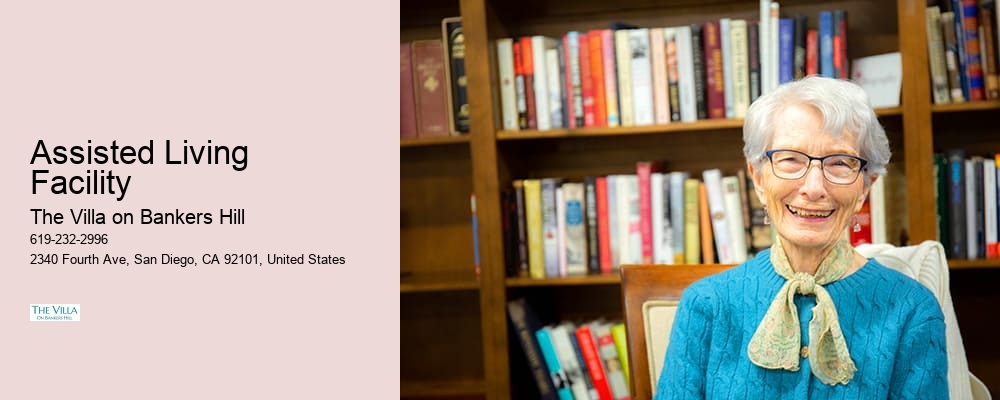

Recently recognized as a Top San Diego Assisted Living Community by the San Diego Union-Tribune, The Villa on Bankers Hill is situated just two blocks from Balboa Park. We specialize in assisted living and memory care, providing diabetic care, medication management, and assistance with daily living tasks. Our inviting, home-like environment features private apartments, round-the-clock nursing staff, and a secure area dedicated to memory care, which families particularly appreciate.

Memory care facilities are specialized living environments designed to meet the needs of individuals with Alzheimer's disease, dementia, and other types of memory impairments. Unlike standard assisted living communities, these facilities offer a higher level of care and structured activities tailored to enhance cognitive function and accommodate the unique challenges associated with memory loss. With secure environments that prevent wandering and staff trained in dementia care, residents are supported in a manner that promotes dignity while ensuring their safety.
Families exploring memory care options should understand the breadth of services provided by these facilities. Typically, they include 24-hour supervised care, assistance with daily living activities such as bathing and dressing, medication management, and various therapies. Additionally, the design of the facility itself is often oriented towards reducing confusion among residents — for example through color-coded hallways or memory boxes outside rooms to help residents identify their personal space. Therapeutic programs might encompass music and art therapy or pet therapy to engage residents at different levels of cognitive ability.
Selecting the right memory care facility requires careful consideration. Families should assess factors like staff-to-resident ratio to ensure personalized attention and evaluate the qualifications and training of caregivers specializing in dementia care. It's also crucial to consider how a facility handles behavioral issues commonly associated with dementia patients such as aggression or agitation. Visiting prospective facilities multiple times at different hours can provide insight into daily operations and resident satisfaction.
Understanding the cost structure is vital since memory care can be more expensive than traditional assisted living due to its specialized nature. Facilities may charge a flat fee or offer an à la carte pricing model based on the level of services each resident requires. It's equally important for families to inquire about communication protocols; regular updates on a loved one’s status can offer reassurance and involve family members in ongoing care decisions. By establishing clear channels of communication from the outset, families can ensure that they remain an integral part of their loved one’s caregiving team within the memory care facility.
| Facility Name | Description |
|---|---|
| Comfort Keepers Memory Care | Provides specialized memory care in a home-like environment. |
| Brightview Memory Care | Offers a holistic approach to memory care with engaging activities. |
| Sunrise Senior Living | Memory care programs designed to meet the unique needs of residents. |
| Heritage Memory Care | Provides compassionate memory care in a secure, supportive environment. |
| Woodland Heights Memory Care | Offers personalized care plans for individuals with memory-related challenges. |